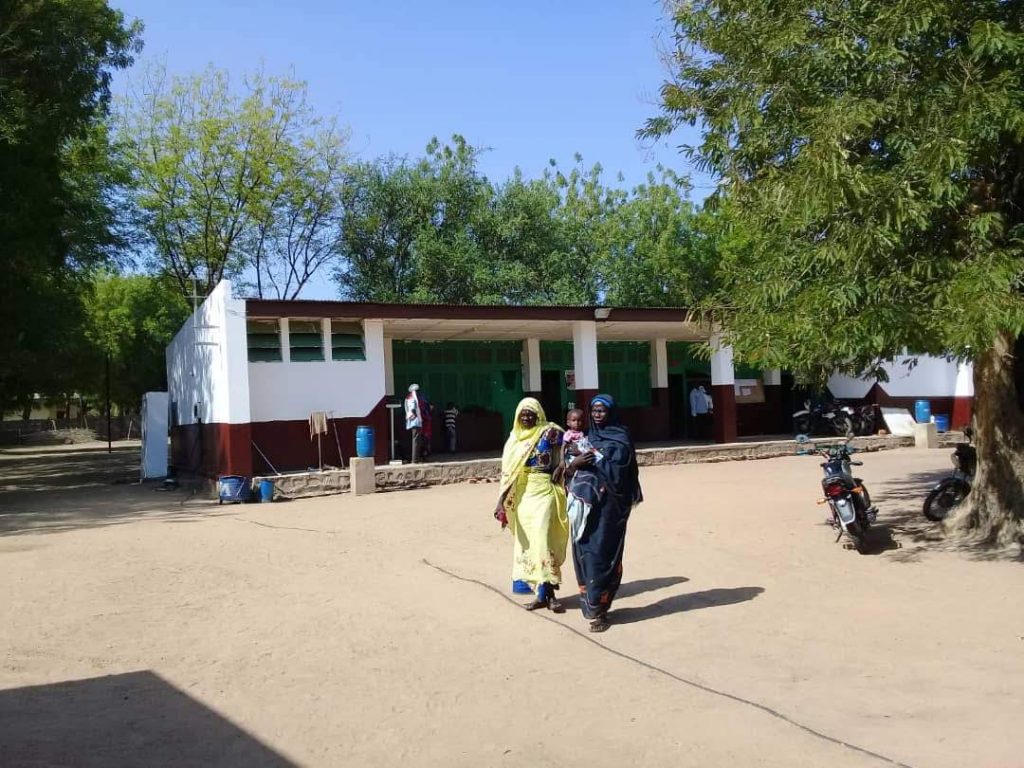In the Central African Republic (CAR), this is not a theoretical question but a stark reality. Plagued by unrest and turmoil, the country is now in urgent need of humanitarian aid and time after time referred to as ‘a forgotten crisis’.
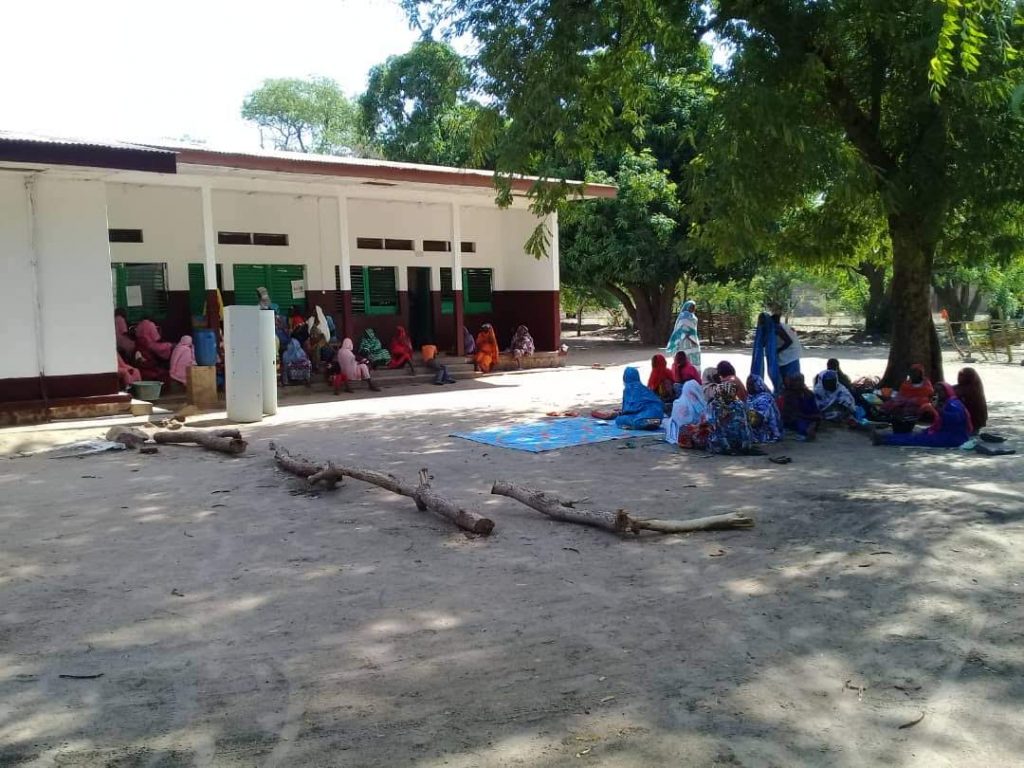
Most people in CAR live in rural areas with functioning medical facilities rarely within reach. Distance is not the only thing keeping Central Africans from accessing healthcare – clinics often operate with limited resources.
Care during pregnancy and childbirth is no exception – overshadowed by risks, giving birth in CAR is not always the joyous experience it should be. With health facilities largely inaccessible, proper care before, during and after childbirth is hard to come by.
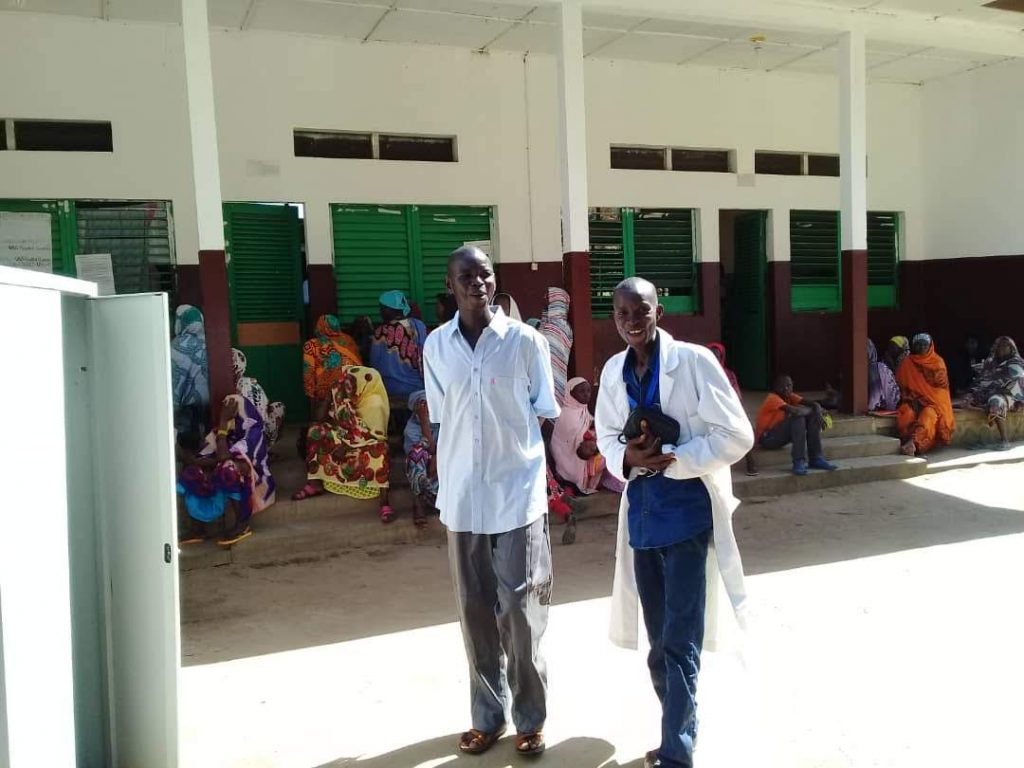
In a country where there are fewer than two licensed midwives per 10,000 people, the risk of complications and death during childbirth is very real: In CAR, there are around 1,400 maternal deaths per year. In the United Kingdom, a country with a population 14 times the size of CAR, fewer than 74 women a year face this fate.
Earlier this year, when International Medical Corps was providing vaccinations in a village in northern CAR, the team was told about a woman named Deya. Having given birth to one baby but struggling to deliver the second one, the mother-to-be was desperately trying to reach a medical facility.
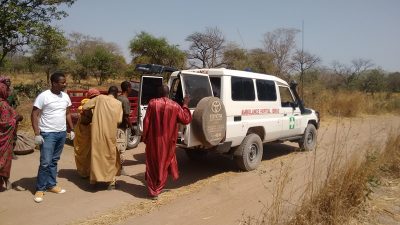
When the team discovered Deya, they called for an ambulance and she was immediately transferred to Birao Hospital. Supported by International Medical Corps and funded by the Bekou Trust Fund, the Ministry of Health runs the facility. It is the only fully equipped hospital in the region. Tens of thousands of people rely on it for primary healthcare and the number is even higher for secondary healthcare.
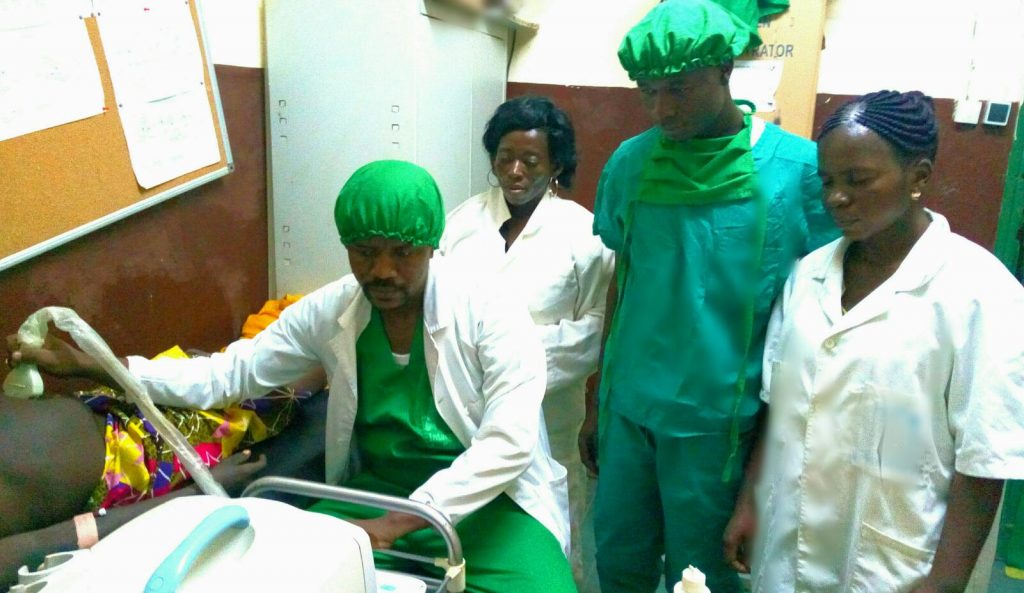
When the young mother arrived, an emergency ultrasound was carried out. The result stunned her and medical professionals alike: Deya was pregnant with triplets! The medical team determined that the second and third baby needed to be delivered immediately. With no time to spare, an emergency caesarean section was performed.
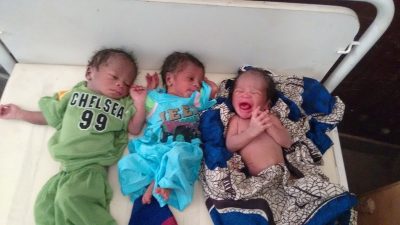
Thankfully, the caesarean was successful and all babies were healthy. After a few days of rest, the whole family was discharged from the hospital. Deya and her babies were lucky; had they gotten to the hospital any later, the two unborn babies might not have survived. With the many complications associated with such a high-risk pregnancy, Deya would also have faced a high risk of death.

Without this intervention – the inaccessibility of medical facilities could have taken a devastating toll on this family. With initiatives to repair an overburdened health care system in CAR and support the approximately 2.2 million people in need of humanitarian assistance, International Medical Corps continues to work alongside the Ministry of Health to improve access to healthcare for all Central Africans.
